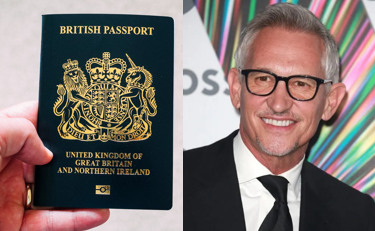renowned football personality Gary Lineker has suggested a solution to the ongoing issue of illegal migration: granting British citizenship to the entire global population. Lineker’s idea, though undoubtedly ambitious, has sparked both intrigue and controversy within political and social circles.
Lineker, known for his outspoken views on various topics, believes that offering British citizenship to everyone across the world would eliminate the concept of illegal migration altogether. His proposal challenges conventional notions of national borders and citizenship, aiming to create a truly borderless and inclusive society.
Supporters of Lineker’s idea argue that embracing global citizenship would promote unity, equality, and human rights on a global scale. They believe it would alleviate the suffering and precarious situations faced by many individuals who embark on dangerous journeys in search of a better life.
However, critics express concerns about the practicality and feasibility of such a proposal. They argue that opening the floodgates to mass migration without proper regulations or considerations could place an enormous strain on resources, infrastructure, and social cohesion. Furthermore, they raise questions about the potential impact on national identity and cultural heritage.
Lineker’s suggestion is part of a broader conversation surrounding immigration policies and the treatment of migrants. While his proposal may be seen by some as an idealistic solution, it highlights the need for innovative thinking and a reexamination of existing immigration frameworks.
As the debate unfolds, it is essential to consider the complexities involved in addressing the migration crisis. Balancing compassion, human rights, and the practical realities of governance is a challenging task that requires careful deliberation and consideration of multiple perspectives.
While Gary Lineker’s proposition to grant British citizenship to the entire world may be met with scepticism, it contributes to a broader dialogue about the root causes of migration, the treatment of migrants, and the ways in which societies can approach these complex issues with empathy and pragmatism. Ultimately, finding a sustainable and equitable solution will require collaboration, compassion, and a willingness to explore new ideas.
















